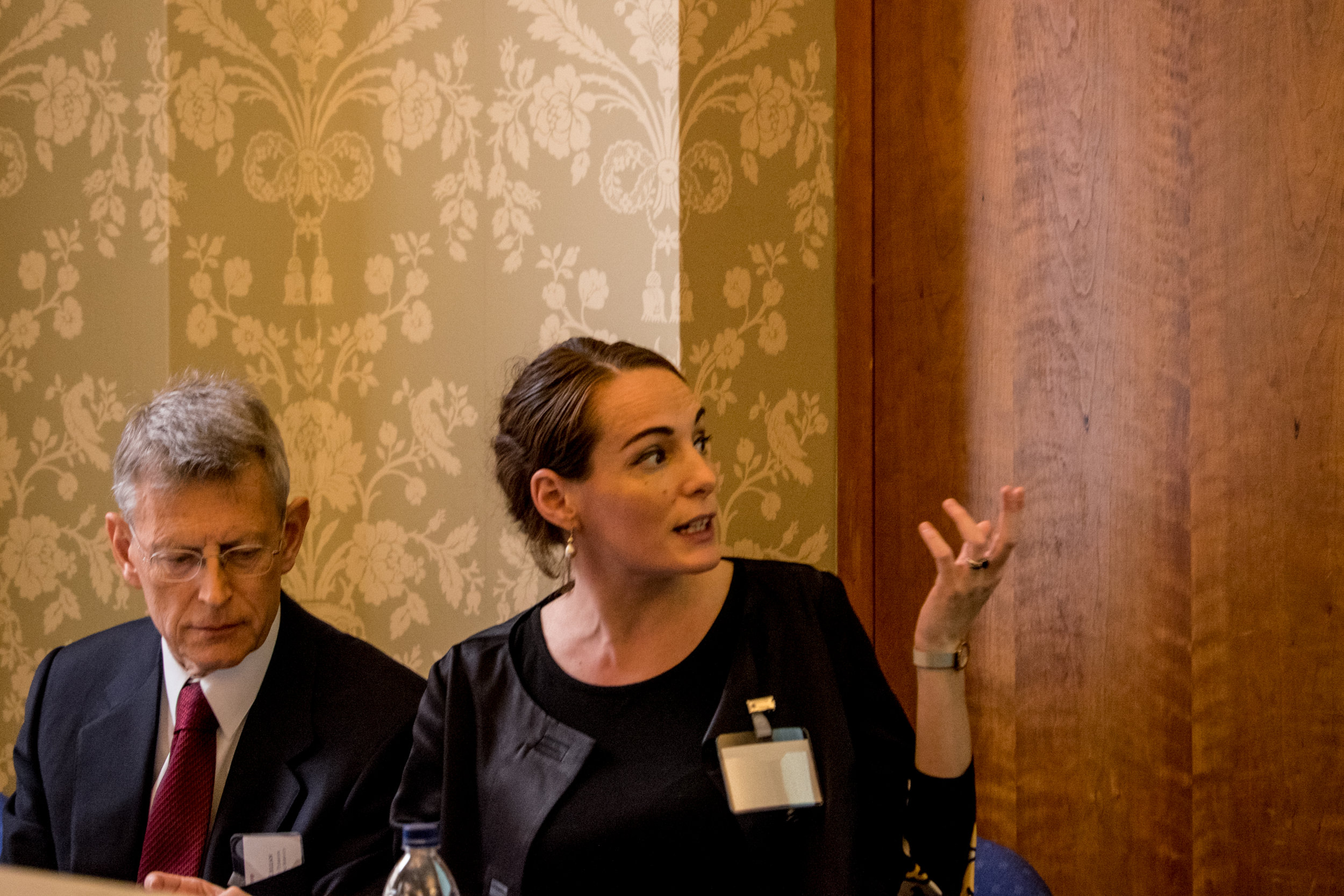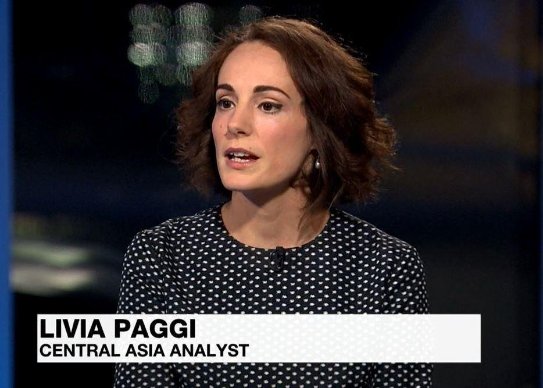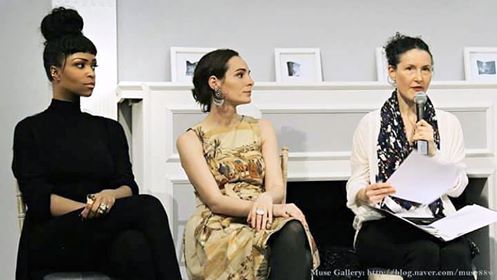Livia Paggi
/POLITICAL, SECURITY & INTEGRITY RISK EXPERT | GPW
http://www.undp.org/
Ten years of experience
CV in brief:
Career so far: Alfa fellow, Statoil | Consultant, Imperial College/DECC | Researcher, Eurasia Foundation | Associate Consultant, Control Risks | Intern for the Transparency and Accountability Project, UNDP
Education: MSc Environmental Technology and Energy Policy at Imperial College London | BA in Political Science at Columbia University in the City of New York
Languages spoken: English, Italian, French and Russian
Find Livia online: Twitter | LinkedIn | GPW profile
Exclusive interview by Lucie Goulet, 9 May 2016
What do you do?
I am a political risk consultant at GPW, a London-based political risk and business intelligence company. My team is composed of experts who have in-depth knowledge of Russia/ the Commonwealth of Independent States (CIS), Turkey and Iran. We have all lived in the region and are fluent in the various languages spoken there. I look at the interplay between business and politics and I advise investors in the region on a range of political and economic risks, such as social unrest, currency devaluations, regulatory instability and others.
Why did you choose GPW?
GPW was the perfect opportunity to combine all of my previous work experience. When I joined, I had just come back from Moscow, where I lived for a year on a fellowship to study Russian and gain work experience. I had always been interested in Russia and had completed internships for various human rights organisations in Central Asia. GPW enabled me to pursue my interest in the region and also gain commercial/business experience.
How did growing up in Italy influence you?
I grew up in a small working-class town with 300 people before moving to New York City. The contrast couldn’t have been bigger! I am used to building relationships across cultural boundaries quickly to survive!
My family had always been involved in local politics and a huge importance was placed on social justice. As a kid, my family brought me along to protests organised by the national Italian trade union and ‘pro-choice’ demonstrations organised by women’s rights groups.
Why did you decide to pursue your interest in the Russian space professionally?
My parents were active in the Italian communist party so talks of the Soviet Union, Gramsci, Marx and so on were always in the background. In Rome when I was 16, I worked at a community centre that primarily served migrants from the Balkans, Ukraine and Moldova. This experience pushed me to want to go travel and get experience ‘on the ground’. The following summer I taught English in a small town in the south of Poland. While at university, I undertook an internship in Tajikistan at an American NGO. At the time, I didn't even know where Tajikistan was on the map but I went there, developed good access to the NGO community, and ended up doing my dissertation on the country. The contact with the people has always fuelled my interest and keeps bringing me back to the region.
How did you learn Russian?
It was a very piecemeal process and it is definitely still a work in progress. First I just threw myself into the language trying to interview and communicate with people. Then in my mid-20s I was selected for a fantastic fellowship that allowed US citizens to study Russian and live and work in Moscow. The fellowship gave me more structure and through this experience (and necessity), it has become a working language for me.
You say you started really pursuing your interest in Russian in your mid-20s? What were you doing before that?
I started out at Control Risks, a global risk consultancy. I was working on projects related Europe and Africa, which relied more heavily on my French and Italian. I worked two years there before pursuing my interest in the post-Soviet space. I left to work in Kazakhstan for a US government funded NGO called Eurasia Foundation.
What's your favourite thing about your job at GPW?
My work is a fabulous combination of political science, economics, psychology and business. It is about understanding how states, which are often made up of a handful of key individuals, make decisions which have an enormous impact on their respective populations.
I travel to the region continuously — just over the past six months, I have been to Kazakhstan, Armenia, Russia and Turkey. When I am there I have the opportunity to meet with opposition activists, journalists, government officials and business executives. I always leave a half-day at the end of my trips to meet with the artists — they always give you the most nuanced view of what is happening in the country!
What's the biggest challenge in your role as Principal Analyst, Political Risk?
Adapting what we know about a country, and making it relevant for investors or businesses who have very specific interests and objectives. I have to continuously ask myself what are the commercial implications of what I just learned? What does it mean for them?
The energy business is quite male dominated. How do you deal with that?
It’s important to have self-confidence and value your own voice and instincts. The benefit of getting older is your start to realise your voice counts just as much as anyone else's, and you tend to find clients value a different opinion. It was definitely harder when I was younger and just starting out.
I turned 30 this year and I've been reading articles by women who turned 30 recently and who wrote that the biggest difference was that they stopped caring about what other people think. Did you find that?
My aunt, a mentor of mine, said she loved being 65 because she could do everything she did when she was 25 but without the insecurities and the self-doubt. There is an element of truth to that. As you get older you come to terms (and embrace!) the different parts of your personality.
Self-confidence is something which keeps coming back in all the interviews I do. How do you deal with it?
Learn to become self-aware and acknowledge your strengths and weaknesses. Having someone older, either a mentor or a colleague who can encourage you and provide you with that kind of safe place where you can go and say, "I'm feeling nervous about this" can really help.
Self-confidence issues are hard to work out on your own. You can put on a brave face but getting an independent view on the issue, helps overcome them. You need to find ways to get a reality check on the insecurity. Often more senior colleagues or other women can help with that.
You were referring to your previous career. You're in your early 30s which is young to have had two different careers. Do you think that's something quite common in our generation?
I graduated from a competitive American university just before the financial crisis. There was an idea that we were all on treadmills and meant to have linear careers from the day we graduated. But exciting careers are not necessarily linear. As humans, we have complex personalities, varied interests and experiences. You have to work out a career that can encompass those different sides of you.
It's okay to leave something if it is not working out how you want it to. Try something else, keep playing around with different options until you get the right mix for you so you can have the most impact.
What advice would you give to a young girl or woman just graduating if she's looking for her career? How do you find your way?
It's important to be faithful to your inner creativity. Learn to listen to it. If you have an idea about something, pursue it. Find ways to combine your different interests. You do this by engaging and getting as much experience as possible through meeting people, doing internships, volunteering and doing odd jobs. My first business experience was running a babysitting monopoly in my building in New York City throughout high school and college!
You have to accept that interesting work is not going to be handed to you on a plate. Sometimes we look at others and get "career envy". But I guarantee you whoever you are in awe of did not get there by just submitting a CV for the position- they laboured years over it!
I never felt that any of my successes fell from the sky. I worked extremely hard to engineer every opportunity I had. I got an internship at the UN because I called them up every day and said, "Have you seen my application? Where is it? Who's in charge? I’m going to be in Dushanbe anyways this summer so you might as well take me on!"
So embrace the messy creative process of figuring out your career and the very hard work that goes along with it!
What are you most proud of in your career?
The times I'm really proud is when I put a huge effort into creating something that proves to be a success. For example, I’d point to the fellowship I was awarded that took me to live in Russia -- I spent a few months putting together an application. I didn't speak Russian, many other candidates did and it was a highly competitive process. I was able to convince the selection committee to invest in me even though I had less experience than other candidates. That to me was proof that if you commit to something you can get it.
Are you one of these people who has a very detailed career plan?
No. Sometimes I wish I did, but the constraints outweigh the benefits! I have themes that drive me and I work out different ways to keep coming back to them from different fields and points of view. I now work for investors, but in the future I’d be interested in advising governments on foreign affairs. I’ve also long been attracted to the idea of making documentaries for a more mainstream audience. I believe there are ways to combine many interests in one career, and my interests have changed over time.





